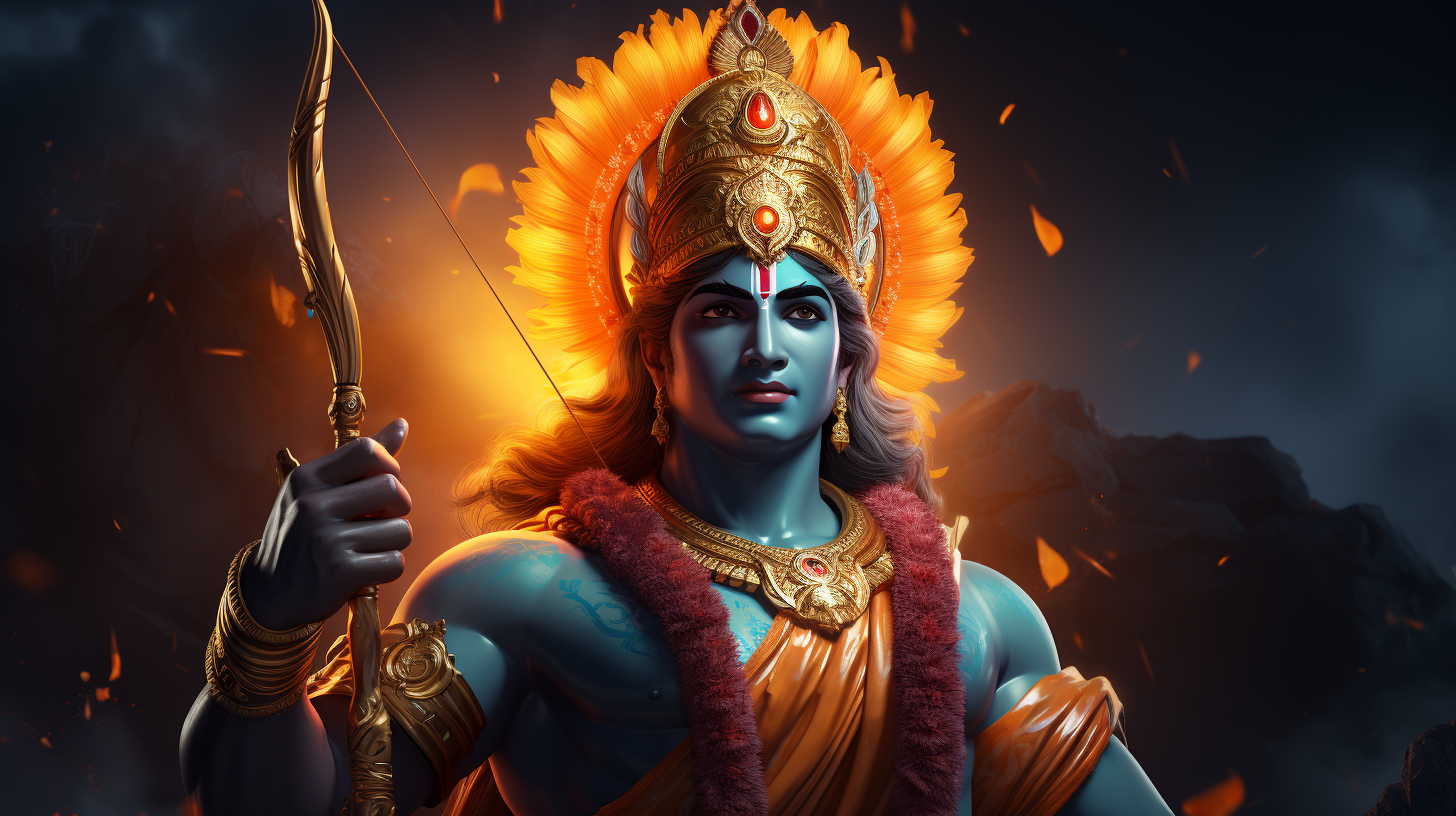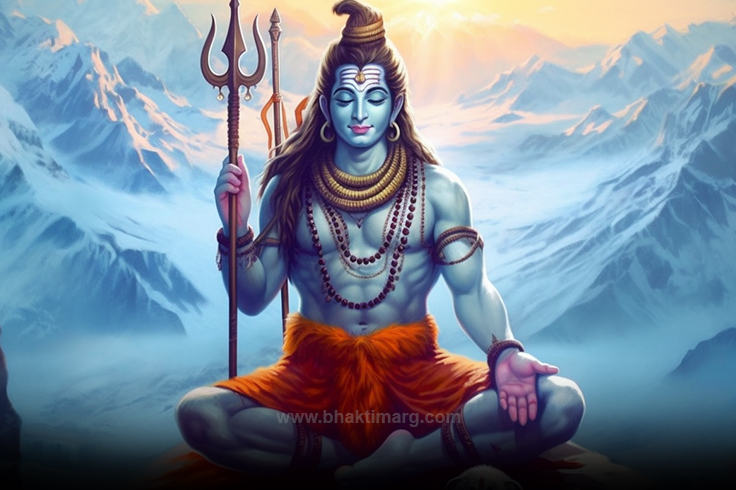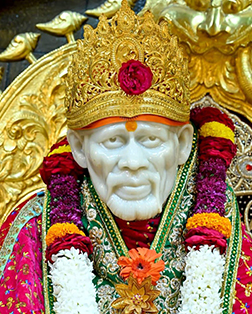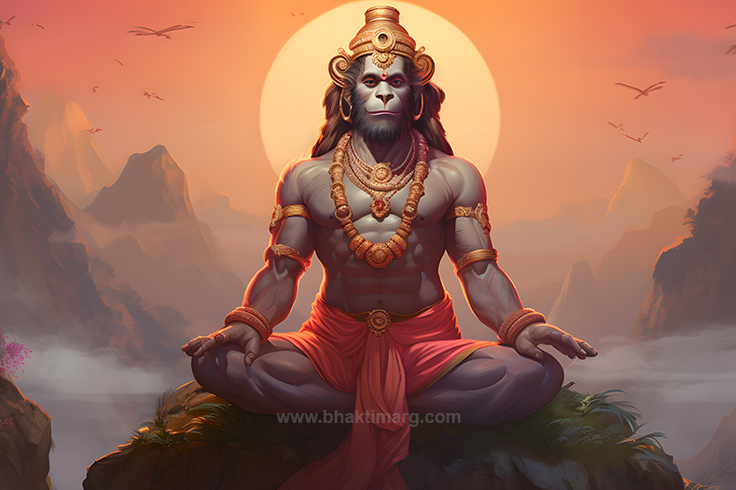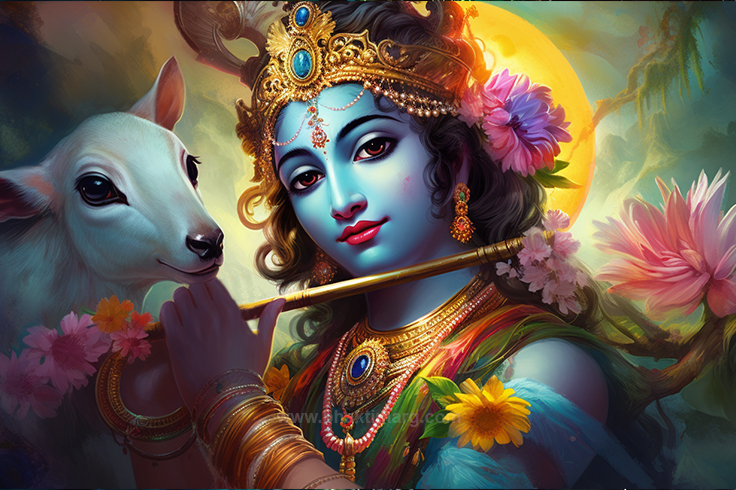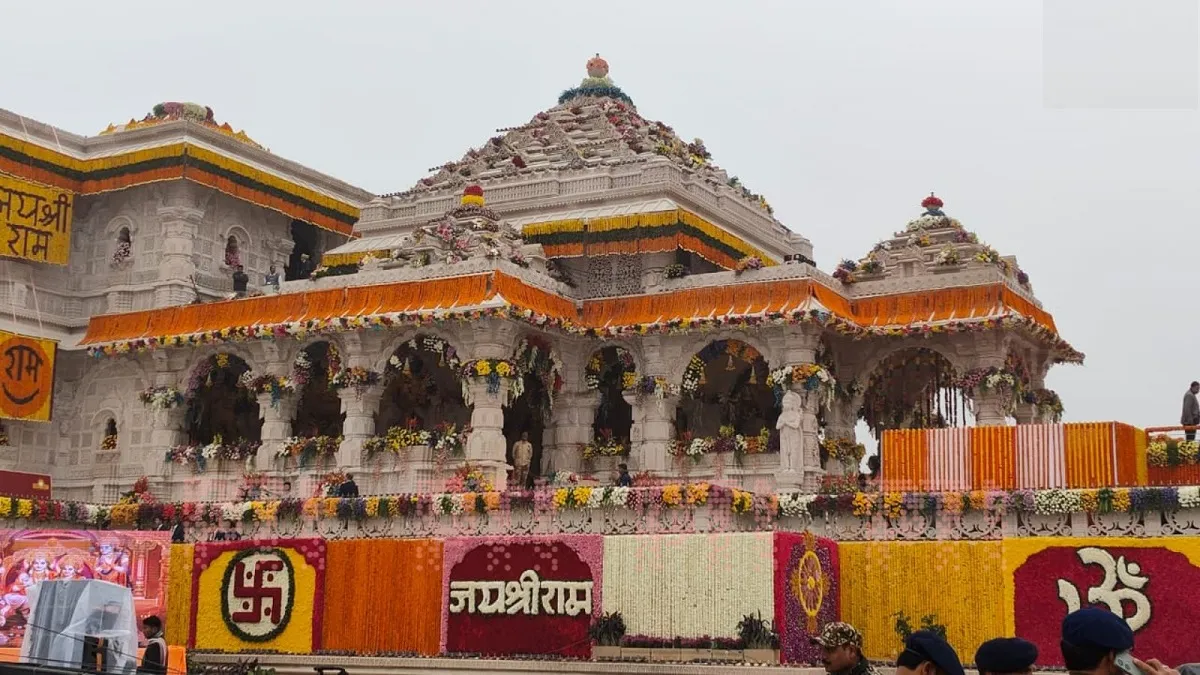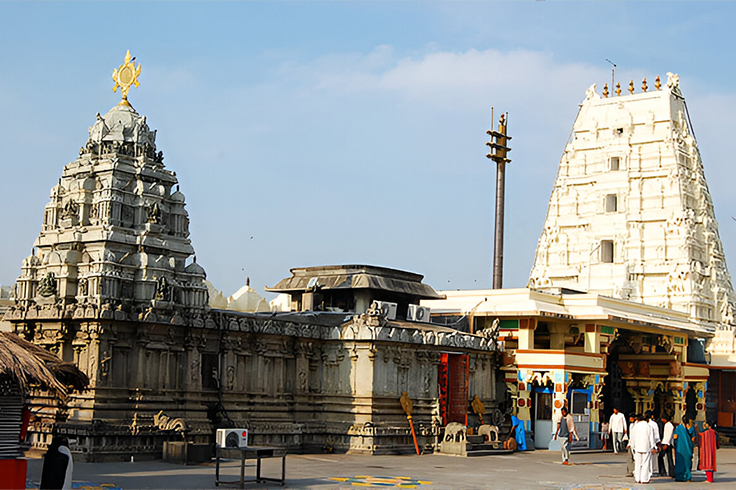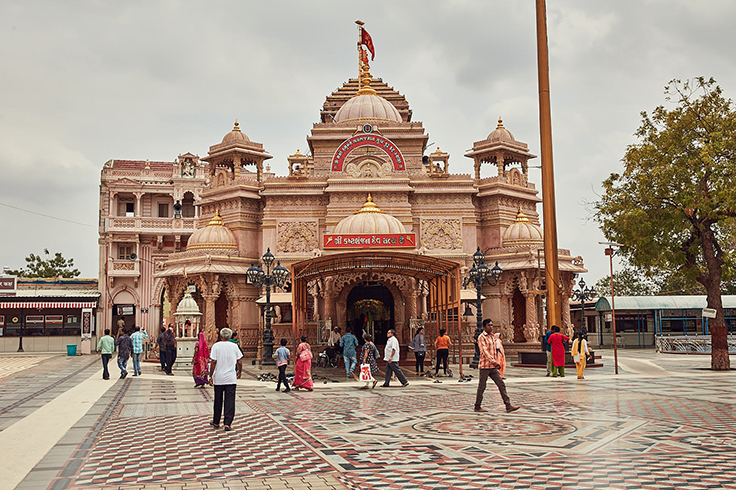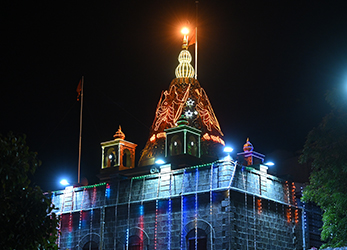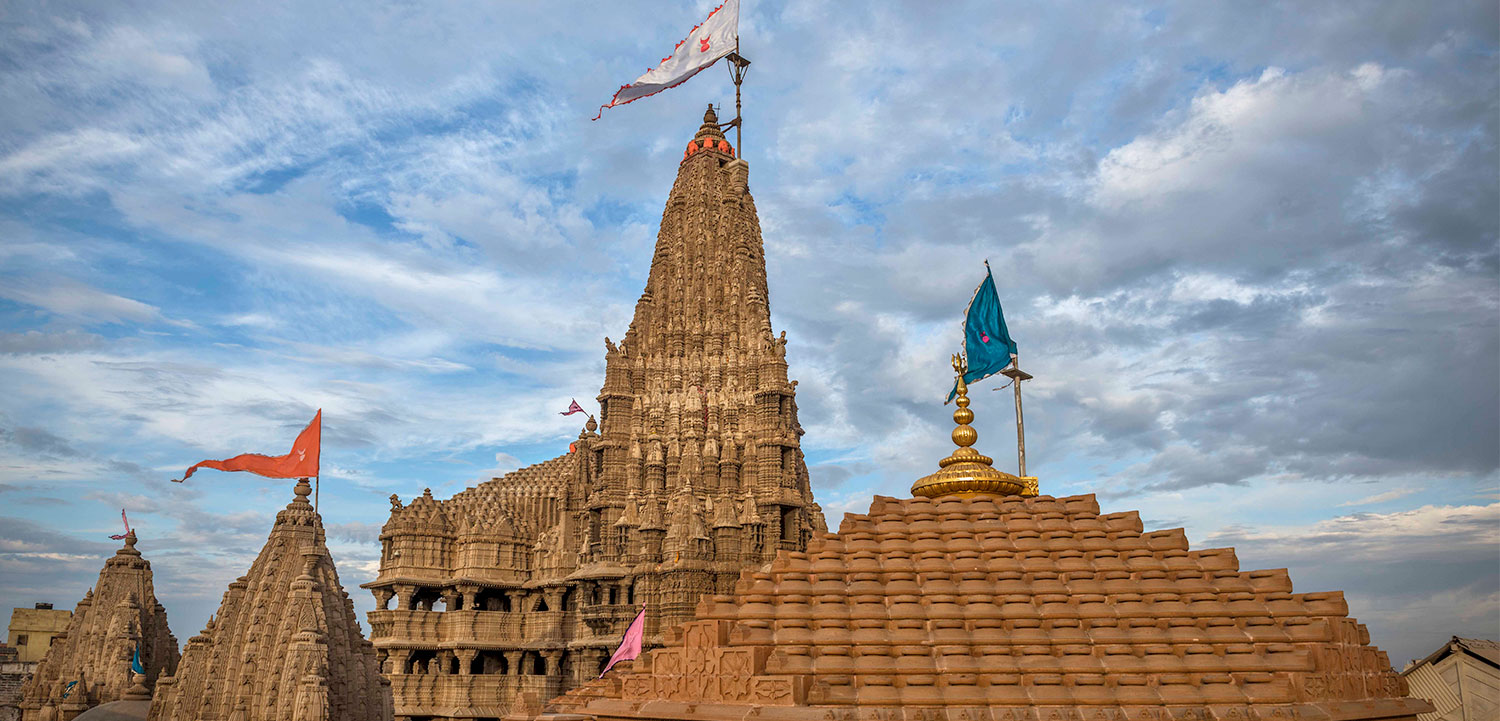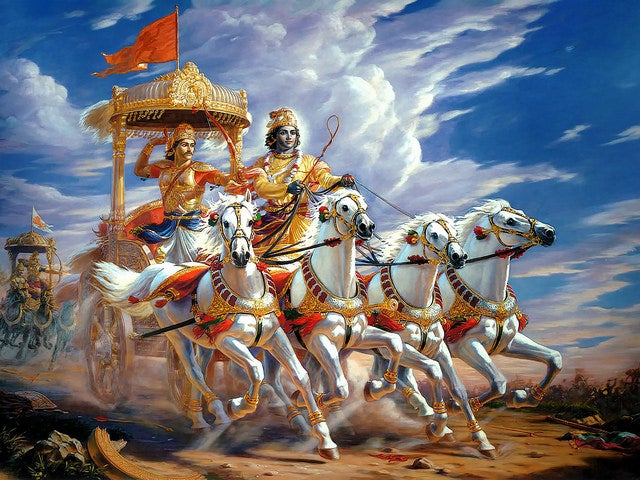
Exploring Krishna’s Role in the Mahabharata
Lord Shree Krishna is the eighth avatar of lord Vishnu who is a preserver of the universe and is set to ascend the world taking various forms preaching and guiding mankind to the way of righteousness and spirituality helping them attain mukti or liberation. Bhagwan Shri Krishna ascended in the Treta-Yug with great intention; hence, he was one of the central characters of Mahabharat.
The Mahabharat is one of the two major Sanskrit scriptures portraying the life of Bhagwan Vishnu on earth, the other is Ramayana. The Mahabharat is not just a scripture but a narrative of a war between Kauravas and Pandavas spanning over 100,000 slokas that along the line describes the complexity of Dharma, morality, and the intricacies of human nature and relationships. It is said that amidst the war of Mahabharat Shri Krishna recited the Bhagavad Gita imparting spiritual wisdom.
Krishna in the Mahabharat was present as a guiding agent rather than an active character, so it is multifaceted and profound, embodying the essence of divine guidance, wisdom, and righteousness. As the central figure in this epic narrative, Bhagwan Shri Krishna’s influence extends beyond human mind comprehension, as he is famous for his Leela’s in this avatar.

Lord Shree Krishna first lived as the son of a cowherd’s head, where he lived as the beloved of Gopi’s, and Radha then became the prince of Mathura, returning to fulfill the objective and ending his evil uncle Kans. Moreover, he moved to his Karmabhoomi, becoming Dwarkadhish Bhagwan Shri Krishna and meeting the Pandavas and Kauravas, who are his distant cousins. He began a new journey in their lives with his influence. Let’s explore through Bhakti Marg the influence or role that Shri Krishna played in the Mahabharat.
Role of Shri Krishna in Mahabharat:
-
Spiritual guide and Philosopher:
If you ever read through the Mahabharat Scripture you would notice that each word uttered by Bhagwan Shri Krishna has a deep innate meaning to it guiding the listener to spiritual awakening. The most significant contribution of Krishna in Mahabharat is the Bhagavad Gita the sacred dialog between him and Pandav Prince Arjuna on the battlefield of Kurukshetra, where Arjuna is filled with moral dilemma regarding the war killing his kin. Then Krishna who was his charioteer imparts him with the knowledge of spirituality and addresses the concept of duty that is Dhram and the eternal nature of the soul providing a philosophical entourage on the topic, making the Bhagavad Gita the philosophical cornerstone of Hinduism encapsulating the essence of Vedantic Philosophy and offering the guidance of following virtue, duty, and devotion that is the Bhakti Yoga, Dharm Yoga, Karma Yoga, and Raja Yoga.
-
Diplomat and Strategist
Bhagwan Shre Krishna as a diplomat and strategist is evident throughout the Mahabharat he has been mediating as a Shanti Doot among Pandavas and Kauravas, guiding his elder brother in running the state and kingdom, offering solutions to Draupadi and Arjuna as a close friend. In all these instances if you read the scripture you would find that Krishna in the Mahabharat has resorted to solving issues with words more than wars, being a thorough diplomat and strategist. Even during the war of Kurukshetra when the war became inevitable, he offered his army to the Kauravas and himself as a non-combat advisor to the Pandavas highlighting his neutrality and detached involvement yet his strategic insights were invaluable to the Pandava’s victory.

Shri Krishna attacking Bhisma with Chariot Wheel
-
Guardian and Charmer
Lord Shree Krishna was known to be a charmer since his childhood no person could escape his charms and miraculous orchestration. One of his iconic moments is when he miraculously saves Arjuna from certain death by elevating the chariot in time to evade a lethal arrow aimed by Bhishma. Another feat was when the Kaurav prince hid to avoid death and he created an illusion making him think it was sunset and leave his hiding and be prey to the hands of Dharma serving justice. The intervention of Krishna in the Mahabharat war underscores his role as a protector of Dharmam his acts reinforce his divine status and his commitment to ensuring the triumph of righteousness.
-
The Universal Form
During the war of Kurukshetra when Arjuna became skeptical of the war ahead along with reciting the spiritual wisdom Bhagwan Shri Krishna reveals his Vishvarupa universal form showing his immense all-encompassing divine nature, that incorporates all creation and time. This revelation is a pivotal moment, underscoring the omnipresent and omnipotent of the divine and helping Arjuna realize the grandeur of the universe’s order and his duty within it, making Krishna in the Mahabharat
-
Legacy and Influence
It cannot be denied that the role of Krishna in Mahabharat was not time-bound but an everlasting legacy that through words would guide all the living souls to attain their life goals and reach their ultimate destination. Bhagwan Shri Krishna’s teaching in Bhagavad Gita inspires countless generations, offering wisdom on navigating the moral complexities of life. His life and deeds in Mahabharat embody the ideal blend of divine and human attributes. Hence starting from Mahabharat, Shri Krishna’s influence extends far beyond the battlefield of Kurukshetra. He not only was an avatar but an existence that left a legacy for generations to come making him a revered figure, and a deity worshipped across various traditions in Hinduism. He continues to guide spiritual seekers towards the path of Dharam and enlightenment.
With all this major defining role of Krishna in the Mahabharat, most people miss that he was just as part of the narrative and related as anyone else. He played the role of king and mediator between kingdoms struggling among themselves to establish peace. Bhagwan Shree Krishna was a dear friend to the Draupadi and her husband the Pandava prince Arjuna, a loving brother to Subhadra and Balaram. Along with being bonded to many relations to several characters of the Mahabharata Shri Krishna was included in all giving all a chance to change and also an onlooker who saw each person’s fate unfold. Being omniscient he knew what would happen and wanted to give each one a chance to choose good and righteousness, and by the end of Mahabharat, Shri Krishna served each of them justice including himself.
To summarize the role of Krishna in the Mahabharat is not limited to being a character in the legend that changed the course of human history. Lord Shree Krishna is rather a moral and spiritual compass of the narrative who through his teachings, deeds, and actions shapes the course of the epic and offers a profound insight into the nature of duty, justice, relations, morality, devotion, and the eternal struggle between good and evil.
Hence throughout Mahabharat Shri Krishna was a spiritual guide, a charioteer, a king, a warrior, a diplomat even, a friend, a philosopher, and overall a justice defending and serving the supreme godhead whose teachings have resonated through the years.




